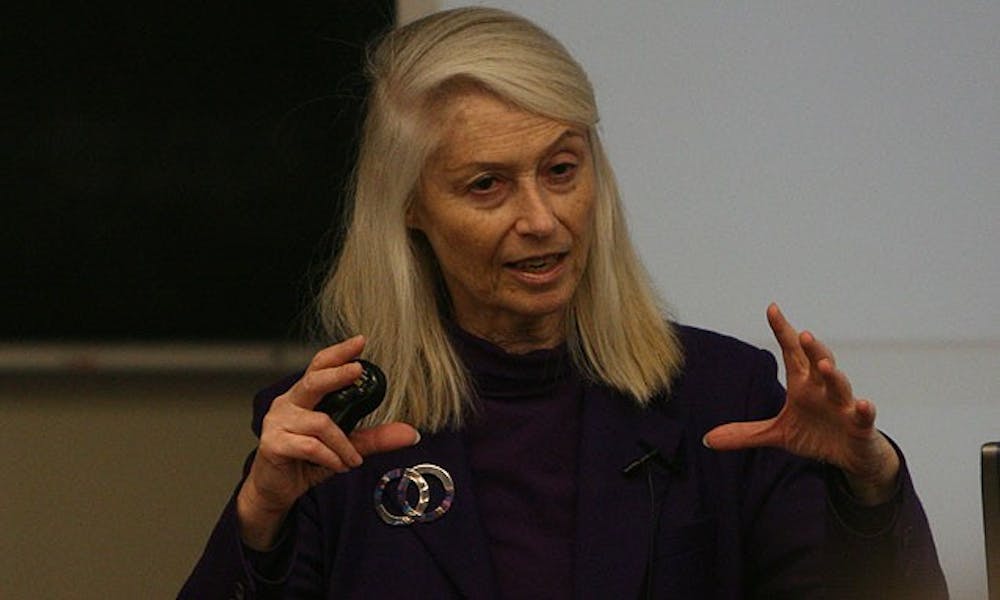At its meeting Thursday, The Arts & Sciences Council tentatively approved a new pass/fail policy and discussed faculty reaction to the CourseRank Web site.
Because Peter Feaver, Alexander F. Hehmeyer professor of political science and the chair of the committee that designed the new policy, was not present at the meeting, Arts & Sciences Council Chair Ruth Day, associate professor of psychology and neuroscience, identified several inconsistencies. These included how the new designations—satisfactory/unsatisfactory rather than pass/fail—would appear on students’ transcripts and affect their GPAs.
The new policy would require students to earn at least a C-minus to receive a “satisfactory” designation, up from a D-minus under the previous policy.
Despite concerns, the Council decided to take a provisional vote on the new proposal.
Members approved opening the policy to freshmen. Students may also be allowed to take prerequisite and co-requisite courses for majors on a satisfactory/unsatisfactory basis if approved by the academic department and the student’s dean.
Members also overwhelmingly voted to require students to declare that they are taking a course on a satisfactory/unsatisfactory basis by the end of the course correction period, which is a week after the drop/add period.
Lee Baker, dean of academic affairs of Trinity College, said he is happy with the vote’s outcome, particularly with the decision to allow freshmen to take advantage of the policy. “We have already had careful and deliberate and long conversations,” Baker said. “This is basically the end of the road, even though Ruth [Day] picked up on some inconsistencies, [we] trust the process and [the Executive Committee of the Arts & Sciences Council].”
Members also discussed the Duke Student Government-sponsored CourseRank site.
George McLendon, dean of the faculty of Trinity College, questioned the site’s effectiveness, pointing to course evaluations compiled by the Office of Assessment that appear with some courses on ACES as an alternative.
But Provost Peter Lange said administrators anticipated that students would develop a site like CourseRank when it was decided that professors could “opt-in” to making course evaluations available online, rather than creating an “opt-out” policy.
Members voted to ask the ECASC to revisit the current opt-in policy.
Duke Student Government President Awa Nur, a senior, said she would also suggest re-evaluating the policy.
“I would say in this economy, it’s a tremendous waste of money that we have the Office of Assessment [compiling evaluations] and the student body doesn’t feel it’s filling their needs” she said in the meeting. In other business:
Day reviewed the results of the Arts & Sciences Priorities Poll with the Council. The poll saw responses from 29 of 31 representatives who were asked to rank the importance of issues that come before the Council’s purview.
The budget was prioritized significantly higher than other issues. Several anonymous comments from faculty representatives showed concern for the effects cuts could have as well as the transparency of budget changes, calling for more faculty participation.
“What will be cut and who decides?” one respondent commented.
Another expressed concern for the “effect of Arts & Sciences budget on instructional budgets and [teaching assistant] support.”
Day said the budget was a “big standout” in the poll, and said she anticipated faculty concerns being addressed in a future meeting, but did not know when.
Baker said the faculty does have input on cuts.
“We do consult with faculty,” he said. “I think George [McLendon] in particular has been very transparent—maybe they want more involvement because they know [the situation].”
In addition, the Council voted unanimously to approve changing the Study Abroad Committee name to the Committee on Global Education for Undergraduates. Members also approved a change to that committee’s charge so that it oversees the domestic projects in New York City and Los Angeles.
Get The Chronicle straight to your inbox
Signup for our weekly newsletter. Cancel at any time.

